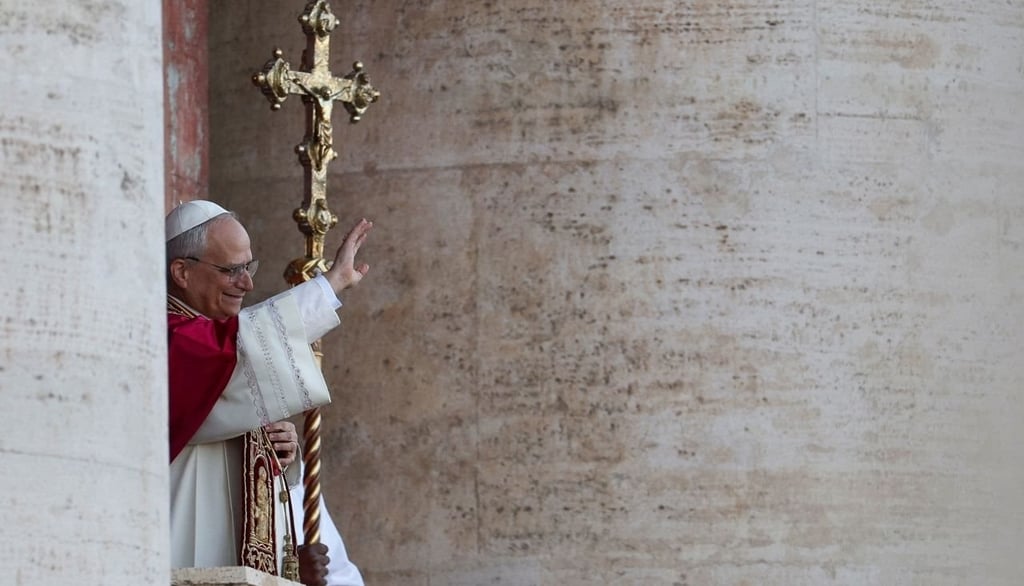The Influence of American Culture on Pope Leo XIV: What Will Change at the Vatican?
What happens when American culture meets the Vatican? Discover the potential impact of Pope Leo XIV's background on the Catholic Church and its future direction.


The election of Cardinal Robert Francis Prevost as Pope Leo XIV marks a truly historic moment: the first time an American has ascended to the Throne of Saint Peter. While his deep faith and years of service within the Catholic Church are paramount, it's impossible to ignore the potential influence of his American cultural background on the leadership of the Vatican. As the world watches, a fascinating question arises: how might the values, perspectives, and even the nuances of American culture shape the papacy of Pope Leo XIV?
A Different Lens: American Pragmatism and Directness?
One prominent aspect of American culture is often its pragmatism and a more direct communication style compared to the historically nuanced and traditional diplomatic approaches sometimes favored within the Vatican. Could we see a shift towards a more straightforward way of addressing issues and implementing changes? American culture often values efficiency and results-oriented action. Pope Leo XIV, having been shaped by this environment, might bring a fresh perspective to the often-deliberate pace of Vatican processes. This isn't to say tradition will be abandoned, but perhaps a greater emphasis on practical solutions and clear communication could emerge.
The Spirit of Collaboration and Outreach:
American society, despite its divisions, often fosters a spirit of collaboration and community outreach, particularly within religious organizations. Will Pope Leo XIV bring a stronger emphasis on engaging with diverse communities, both within and outside the Church? His background in the United States, a melting pot of cultures and beliefs, might equip him with a unique sensitivity to interfaith dialogue and broader societal engagement. We might see a papacy that prioritizes building bridges and fostering open conversations with different cultural and religious groups.
Navigating Political Landscapes: An American Perspective?
The United States operates within a distinct political landscape, characterized by a strong emphasis on the separation of church and state, yet with religious voices often playing a significant role in public discourse. How might Pope Leo XIV navigate the complex global political stage with this background? His understanding of the dynamics between faith and secular governance in the American context could offer a unique perspective on international relations and the Church's role in global affairs. It will be interesting to see how he approaches issues of religious freedom and the Church's engagement with various political systems around the world.
Technology and Modern Communication:
American culture is undeniably at the forefront of technological innovation and modern communication. Could Pope Leo XIV usher in a more digitally savvy era for the Vatican? While the Church has adapted to modern media, an American-born Pope might bring a deeper understanding of digital engagement, social media, and using technology to connect with a global audience, particularly younger generations. This could lead to new and innovative ways of disseminating the Church's message and fostering a sense of global community.
Potential Shifts in Emphasis:
It's also worth considering potential shifts in emphasis on certain issues. American Catholicism has its own unique history and priorities. While remaining aligned with core Catholic teachings, Pope Leo XIV might bring a heightened awareness to certain social justice issues prevalent in the American context, such as racial equality or economic disparities. His experiences in the United States could shape his understanding and approach to these global challenges.
Conclusion: A New Chapter with Familiar Roots?
Ultimately, Pope Leo XIV's papacy will be shaped first and foremost by his faith and his role as the successor of Peter. However, his American cultural background is undoubtedly a part of who he is and how he views the world. While we can only speculate on the specific changes that might occur, the intersection of American pragmatism, a collaborative spirit, experience navigating a diverse society, and familiarity with modern communication could bring a fresh dynamic to the Vatican. The coming years will be fascinating to observe how these cultural influences intertwine with the enduring traditions of the Catholic Church, potentially ushering in a new chapter with both familiar roots and unique American inflections.
Frequently asked questions
What is the main focus of this blog post?
The blog post analyzes how Pope Leo XIV's American cultural background might influence the Vatican and the Catholic Church.
What are some aspects of American culture that might impact the Vatican according to the article?
The article discusses potential influences on pragmatism, communication style, collaboration, political perspectives, and the use of technology.
What is the article's overall tone or conclusion?
The article is speculative but suggests a potentially fresh dynamic in the Vatican due to the Pope's American background, while acknowledging the enduring traditions of the Church.
How might Pope Leo XIV's experience in the United States affect his global outreach?
His background in a diverse society might lead to a stronger emphasis on interfaith dialogue and engagement with various cultural groups.
Is Pope Leo XIV the first non-Italian Pope?
No, there have been several non-Italian Popes throughout history. However, he is the first Pope to be born in the United States.
Does the article predict radical changes in Catholic doctrine?
No, the article suggests potential shifts in approach and emphasis rather than fundamental changes in core Catholic teachings.
